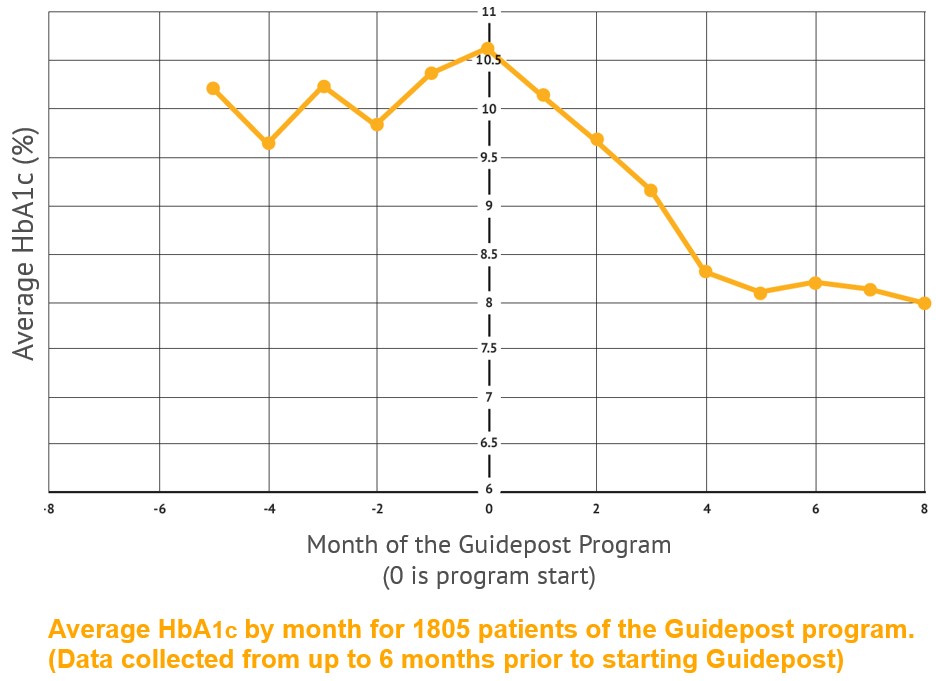Insurers
Global diabetes costs currently exceed one trillion dollars annually and the costs are estimated to rise above two trillion dollars by 2030 – more than 2% of global GDP. One in every 11 adults has diabetes, with more than half of those undiagnosed. Diabetes is one of the leading causes of death and the incidence of diabetes is rising.
The crisis in diabetes healthcare is not a crisis of strategy or clinical knowledge – it is a crisis of execution. The medication, guidelines, procedures and processes exist. What is missing is the last mile of execution – helping people with diabetes to understand and adopt the medication and behaviours that will lead to sustained positive change.
Through diabetes coaching, we have demonstrated substantial net benefits to insurers and people with diabetes. HbA1c, a measure of blood glucose control, has been shown to correlate with risk of complications and mortality. For every 1 percentage point reduction in HbA1c, the UKPDS study showed that the risk of diabetes-related deaths decreases by 21% and the risk of heart attacks reduces by 14%. Participants in Guidepost coaching show an average decrease in HbA1c of over 1.5 percentage points with larger reductions in higher-risk groups such as newly insulinised and post-hospitalisation cohorts.
For health insurers, Guidepost reduces hospitalization rates and improves appropriate utilisation of medication and procedures. In a consensus report, the American Diabetes Association and the European Association for the Study of Diabetes recommended that all people with type 2 diabetes be offered access to ongoing diabetes self management education and support programmes. Guidepost provides an effective and efficient way of implementing all of the components of diabetes self management education and support identified in the consensus report.
As a value-added service for life insurers, Guidepost improves sales and enhances retention while reducing the cost of reinsurance. By improving health outcomes, Guidepost helps reduce mortality risk.
The markers of poor future outcomes are not clearly visible in population data. What is missing is the detail – the context of each person’s unique situation. We have shown that real results are driven by connecting knowledgeable, caring coaches to people that need care, and execution together on an appropriate care plan to iterate success. Through the trusting relationship established between the coach and the person with diabetes, Guidepost can more accurately predict future risk and work actively to reduce that risk.
To find out what Guidepost can do for you, get in touch with us using the form below.

